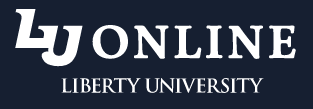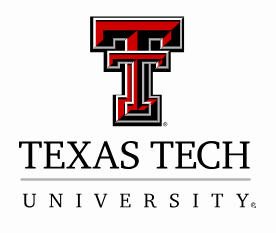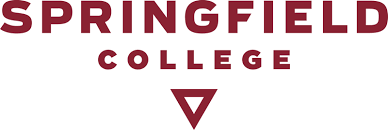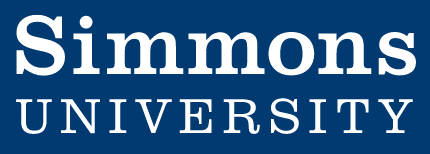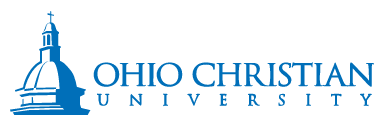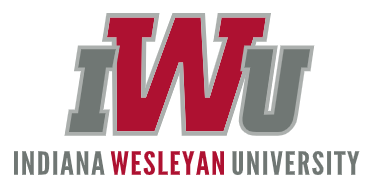Find Your Perfect School
The National Survey on Drug Use & Health reveals that 162.5 million Americans aged 12 or older have used illegal substances. Among the most commonly abused drugs are marijuana, central nervous system (CNS) stimulants, cocaine, heroin, and prescription pain relievers.
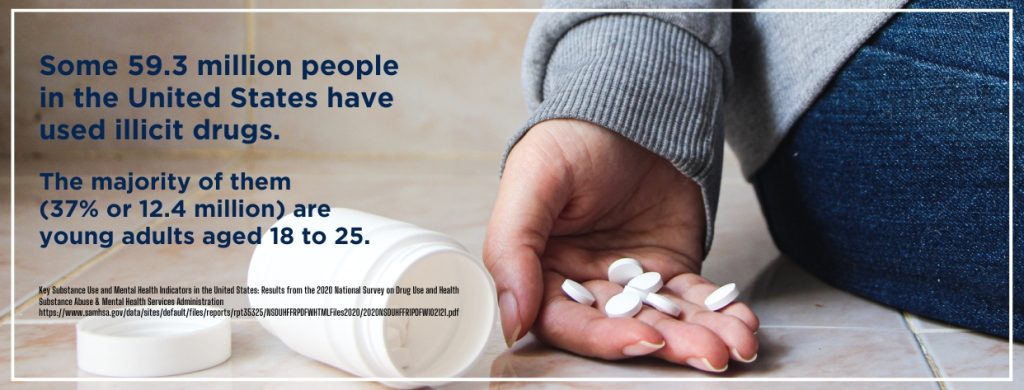
Reports say that genetics, which include the impact of a person’s environment on their gene expression, account for about 40-60% of their risk of addiction. Environmental factors also increase a person’s risk of addiction, including their home environment, peer influences, community attitudes toward drugs, poor academic achievement, and a family member’s history and attitude toward drugs.
Because substance use disorder has become a global public health concern–and with such cases crowding the criminal justice system–especially among the youth, the importance of preventive measures cannot be emphasized enough. These include family involvement, parental guidance and disapproval of substance use, parental monitoring, and school connectedness. Aside from that, users must have easy access to addiction and recovery and mental health counseling. Because of this, the demand for addiction and recovery professionals has increased over the recent years.
To be an addiction and recovery counselor, one must pursue a Substance Abuse Counselor degree, which is closely related to a Bachelor’s degree in Addiction and Recovery. Online Substance Abuse Counseling programs specifically offer individuals training to become effective chemical dependency counselors, addiction counselors, substance abuse counselors, and drug and alcohol treatment specialists.
The Labor Statistics Bureau reports that substance abuse, behavioral disorder, and mental health counselors employment is estimated to grow by 22% from 2021 to 2031. This translates to 43,600 job openings every year until the end of the decade. The figures prove that students with a Bachelor’s degree in Addiction and Recovery will have plenty of career opportunities upon graduation.
Quick Summarization
An online bachelor’s degree in Addiction and Recovery degree is designed to train individuals passionate about solving one of the country’s most pressing issues—drug and substance abuse. This program will teach students to evaluate clients, develop and implement treatment plans, and provide counseling services to individuals suffering from substance abuse.
Methodology
This article features the ten best schools offering an online Bachelor’s in Addictions and Recovery degree. We used several factors to ensure that we can make this list as comprehensive and accurate as possible and help students make informed decisions on where to enroll.
Below are the determining factors we used to select each of the best institutions and undergraduate Addiction and recovery programs:
- Holds classes online or partly web-based to allow adult students to customize their online education and suit their schedules and other commitments,
- Features a curriculum that covers relevant topics, including the foundations of addiction and substance use disorders, behavioral health, process addictions, legal and ethical issues, treatment of addiction and substance use disorders, and counseling theory applicable to a diverse society, among others,
- Features coursework and fieldwork that develop students’ foundational knowledge and relevant skills, including stress management, problem-solving, patience, empathy, compassion, and communication, to ensure they’ll be able to effectively help users recover from addiction,
- Employs exceptionally skilled professors who have years of experience in addiction and recovery counseling,
- Offers generous credit transfer policies and provides Federal Student Aid opportunities, including grants, scholarships, and loans, to further reduce the total cost of tuition,
- The program must have proper accreditation from these agencies to ensure the college or university complies with the highest standards of teaching:
Explore our process of finding the best undergraduate schools and programs! Visit our Methodology page.
10 Best Online Bachelor’s in Addictions & Recovery
Liberty University
Liberty University is an evangelical liberal arts university that is home to 15 colleges and schools and over 700 programs, including certificate, Bachelor’s, master’s, and doctoral degrees, serving over 100,000 students. More than 600 of the programs it offers are available to students through distance learning.
This institution is committed to providing the right balance between academic theory, hands-on training, and research to ensure that it prepares all students to succeed in their profession of choice. Through its world-class programs, students will develop essential skills, including data analysis, critical thinking, communication, and research, ensuring that they are more than capable of making valuable contributions in their chosen fields.
Liberty University’s online Bachelor of Science in Psychology – Addictions and Recovery degree is for those who want to help people recover from addiction. It provides training and the necessary tools to equip learners to help clients develop healthy coping mechanisms and heal from past traumas.
Through this online degree program, students will know how to diagnose, assess, and formulate treatment plans for people who are struggling with substance addiction. They will be trained on how to conduct interventions with compassion and understanding. They will also study the biological, psychological, and socio-cultural issues that affect an addict’s behavior.
Some of the course requirements for Liberty University’s Addictions and Recovery program include:
- Behavioral Modification
- Psychological Measurement
- Treatment & Recovery of Addictions
- Cognitive Psychology
- Overview of Theory & Treatment of Substance Abuse
This university is Southern Association of Colleges and Schools Commission on Colleges (SACSCOC)-approved.
Texas Tech University
Texas Tech University spearheads meaningful research and service to humankind while promoting intellectual and personal development. Here, students can enroll in over 150 degrees to build a robust foundation for a brighter future.
TTU’s Bachelor of Science in Counseling and Addiction Recovery Sciences (CARS) program prepares students to excel in roles that involve human services administration and service delivery, such as substance abuse prevention and counseling, nonprofit administration, mental health services, case management, or management of community service and outreach organizations. This program also provides a solid foundation for those who are looking to pursue graduate studies in counseling, substance abuse prevention or treatment, marriage or family therapy, and other mental health disciplines.
This online CARS degree program focuses on professional readiness and service delivery. It features coursework that is grounded in family systems theory and how it applies in human services settings. Its curriculum features core elements that provide students with a deeper understanding of the various manifestations of addiction and the development of multicultural competence.
Upon graduation, CARS students will have developed a unique skill set in counseling theories, administration, cultural competence, leadership, and program delivery. They will also be adept in understanding addiction, including its assessment, prevention, treatment, and relationship dynamics.
This program can qualify students to take the Licensed Chemical Dependency Counselor (LCDC), which will require them to start the process as mental health counselors, as regulated by the Texas Health and Human Services (HHS) and the Texas Certification Board of Alcohol and Drug Counselors (TCBAP).
Grand Canyon University
Grand Canyon University is an institution with a Christian worldview and was built on the foundation of ethics, missional work, and integration of the Christian faith in all academic areas.
GCU ranked among the best college campuses in America in 2023 and was the top college campus in the state of Arizona. In 2022, the university has awarded more than $300 million in scholarships. This university offers a wide selection of online and hybrid Bachelor’s, master’s, and doctoral degree programs to cater to adult students and working professionals. These programs are also aimed at helping learners have the flexibility they need to gain the necessary skills and credentials needed to meet their personal and professional goals.
At GCU, students who want to help make a difference in people’s lives through substance abuse counseling can pursue the online Bachelor of Science in Counseling – Emphasis on Addiction, Chemical Dependency, and Substance Abuse. It offers students various opportunities to service communities, individuals, and families with compassion and competence.
GCU’s BS in Counseling with an emphasis on Addiction, Chemical Dependency, and Substance Abuse program is accredited by the Council on Social Work Education (CSWE), ensuring that it meets the criteria for the program assessment through a peer review process. This program provides students with a strong foundation in the counseling field, teaching them a combination of theoretical know-how and applied skills, including hands-on learning experiences. Additionally, students will develop the necessary skills in assessment, case management, intake, screening, and treatment planning.
These are some of the core courses for GCU’s BS in Counseling – Addiction, Chemical Dependency, and Substance Abuse:
- Introduction to Counseling Theories
- Domestic Violence, Child, Elder Abuse-Family with Addiction & Substance Use Disorders
- Spirituality and Addiction
- Foundations of Addiction and Substance Use
- Multicultural Counseling in a Diverse Society
Washburn University
Washburn University is a top-notch institution in an urban setting in the heart of Topeka. It has five schools: the College of Arts & Science, the School of Applied Studies, the Business School, the School of Law, the School of Nursing, and the Washburn Institute of Technology.
At Washburn University, students are guaranteed affordable tuition that is charged per credit. Classes are relatively small with fewer than 20 students per faculty. Classes are taught by full-time professors who hold doctoral degrees, and not graduate not teaching assistants, ensuring that students will work directly with their instructors in their research, courses, and other projects.
With a Bachelor of Applied Science in Family & Human Services – Addiction Counseling degree from Washburn University, students will be more than ready to build a successful career as addiction counselor who can easily find solutions, be an advocate, have a strong desire to help others, and empathize. More importantly, they will have the capacity and capability to help overcome substance abuse through evidence-based assessments, interventions, and practices, working in clinics, outpatient rehabilitation centers, hospitals, prisons, halfway houses, and resident treatment facilities.
BAS in Family & Human Services – Addiction Counseling undergraduates will gain real-world experience through two 200-hour internships at a substance use treatment agency of their choice. They will also have a chance to pursue a special interest in aging, advocacy, nonprofit management, or trauma. Plus, this degree prepares them for graduate studies should they want to pursue a Master of Arts in Family and human Services or other programs in a related field.
This degree program is available on campus, online, or hybrid. It gained the approval of:
- National Association for Alcoholism & Drug Abuse Counselors
- Association for Addiction Professionals
- Kansas Behavioral Sciences Regulatory Board (KSBSRB)
It prepares students for the examinations to become a Licensed Clinical Addiction Counselor (LCAC) and KDADS Person-Centered Case Manager (PCCM).
Springfield College
Springfield College is proud of its students and personnel’s experiences, distinctiveness, and perspectives that contribute to the enrichment of Springfield College as an institution. It also recognizes belongingness, equity, diversity, and inclusion as core values that help Springfield College among communities, as well as promote justice and equity for all.
The Springfield College Bachelor of Science (BS) in Human Services – Addiction Studies degree is offered both in online and hybrid formats, allowing students to customize their degree to suit their interests and schedules. This program helps students become successful addiction professionals (i.e., counselors or certified prevention specialists) by developing relevant skills and competencies in addiction-focused healthcare organizations that specialize in addiction, education, intervention, prevention, recovery support, and treatment.
The Addiction Studies concentration track is aligned with local and national licensure and certification organizations. It trains individuals to be addiction and prevention professionals who can provide recovery and treatment services that will enhance access to care, produce better outcomes, and improve the quality of services for those suffering from substance dependency.
One of the notable projects participated in by Addiction Studies students involves addressing gambling addiction on the Springfield campus as a response to a casino in the downtown area. Graduates of the Addiction Studies program get to work in inpatient and outpatient addiction centers, individual and family service agencies, local and state government offices, nursing and residential care facilities, and other hospitals and centers.
Course requirements for Springfield College’s BS in Human Services – Addiction Studies program include:
- Introduction Human Services
- Political Economy, Democracy & Community Development
- Health & Human Services Policy
- Introduction to Addiction Studies
- Addictions Counseling
Simmons University
Simmons University is a private university that has become a model of higher education. This institution offers online undergraduate and graduate programs that are designed to fit every student’s lifestyle and empower the new generation of leaders. Being a part of Simmons University means students will have a chance to contribute to a unique community of ambitious, compassionate, and curious people, including faculty, staff, alumni, and students.
Enrolling in a degree at Simmons University allows students to explore their interests with thoughtful discussions, real-world experiences, and life-changing individuals. It has a commitment that can be proven by the different state-of-the-art facilities they have for living, learning, and teaching. It is also dedicated to guiding more than 4,000 students to succeed.
Simmons University’s Bachelor of Science in Addiction Studies degree trains students to make a difference in the lives of those who are affected by substance abuse and addiction. Through this program, students will be able to turn their passion for helping people recover from addiction into a meaningful and rewarding career.
The BS in Addiction Studies program will teach students to scrutinize the historical context and social stigmas of substance abuse and related issues. They will learn to work within the country’s healthcare system to manage cases, treat the root cause of addiction, and conduct clinical assessments. Upon graduation, students can work on becoming certified substance abuse counselors.
The following courses are included in the program requirements for Simmons University’s BS in Addiction Studies degree:
- Drugs and Society
- Interviewing and Documentation in Human Services
- Introduction to Public Health Promotion
- Addictions Assessment and Counseling in Public Health
- Motivational Interviewing Strategies with Addictions
Beal University
Beal University was established in 1891 and is celebrating over 130 years of service. This university is committed to providing an ideal learning environment for those who are looking for a targeted, hands-on education that hones their skills and provides rigorous training to prepare them for successful careers in the future.
Beal University’s mission is to guide its students in their journey toward fulfilling career opportunities through its contemporary academic programs. It is also dedicated to becoming the most prominent educational institution in the state by providing exceptional degree programs in an environment that’s student-centered to ensure they empower individuals to excel in their chosen fields.
Those who dream of landing rewarding careers in addiction counseling in the future should enroll in Beal University’s Bachelor of Science in Addiction Counseling degree. This program is aimed at those who have an innate desire to help those who suffering from substance addiction.
The BS in Addiction Counseling program equips students with valuable skills for careers as addiction counselors who help clients throughout their recovery. Courses for this program include topics such as assessment, individual and group counseling, case management, client education and community resources, trauma and recovery, treatment planning, crisis intervention, and vocational rehabilitation. There will also be discussions on special issues, including aging, cultural differences, disabilities, gender, sexual harassment, and co-occurring disorders.
Required courses for Beal University’s BS in Addiction Counseling degree include:
- Addiction Prevention: Theories and Techniques
- Spirituality and Addiction
- Diagnosis and Treatment Planning in Addiction Services
- Community Psychology
- Human Services Organizational Systems
Ohio Christian University
Ohio Christian University is an educational institution that’s committed to providing students with a complete education that enhances them intellectually, professionally, and spiritually. It offers degree programs that suit the needs of residential undergraduate students, graduate students, and adult students or distance learners.
OCU was initially established to educate clergy for the Churches of Christ in the Christian Union. Since then, it has expanded its reach by being Higher Learning Commission (HLC)-accredited. It is also the Association for Biblical Higher Education (ABHE)- and the Council for Christian Colleges and Universities (CCCU)-affiliated.
OCU’s Bachelor of Arts in Substance Abuse Counseling degree trains students to be ready to enter the field of addiction recovery. Students who wish to be licensed in the field of chemical dependency counseling in Ohio must complete this program as it meets more than the required number of minimum hours.
Upon completion of the program requirements, students will be able to assess the needs of individuals suffering from addiction through assessment techniques, diagnostic criteria, and planning of treatment. They should be able to use appropriate counseling techniques with individuals, groups, or families and apply the right interventions, ethical codes of conduct, and knowledge of drugs.
More importantly, they should know how and when to apply Christian principles in decision-making and critical thinking to the study of addiction counseling.
The following are some of the major courses for OCU’s BA in Substance Abuse Counseling degree:
- Introduction to Substance Abuse
- Theories and Techniques of Group Counseling
- Prevention Strategies
- Ethical and Legal Issues in Counseling
- Spiritual Dimensions of Illness and Recovery
Empire State University
Empire State University is the State University of New York’s leading online institution. It was founded in 1971 to empower students from diverse backgrounds to achieve their personal and professional goals. Since then, it has been providing students with educational access through distance learning, mentoring, individualized instruction, and prior learning assessment.
SUNY Empire is serving over 16,000 students across the state of New York, the nation, and the world, specializing in top-notch, affordable, and flexible education for adult students, including parents, military affiliates, and veterans. This university now has over 95,000 alumni composed of entrepreneurs, leaders, nurses, and teachers. It currently offers 123 fully online Bachelor’s master’s, certificate, and doctoral degrees.
Empire State University offers an online Bachelor of Science in Addiction Studies program that’s designed for those who are committed to becoming experts in understanding and treating individuals who suffer from substance dependency. This degree features courses that address fundamental aspects of how addiction affects not only the individual but also their families and communities. Its curriculum will also teach them to assess, prevent, and treat substance dependency.
One of the reasons students should enroll in this program is that it is guided by the competency model set by the US Department of Health and Human Services. This degree also features a curriculum that emphasizes providing students with fundamental skills that will allow them to work with individuals, families, and groups struggling with substance dependency.
Curriculum requirements for Empire State University’s BS in Addiction Studies program include:
- Addiction & Dependency: Introduction
- Helping & Counseling Skills
- Interventions for Addiction Disorders
- Substance Abuse Interventions in the Workplace
- Evidence-Based Substance Abuse Counseling
Indiana Wesleyan University
Indiana Wesleyan University was founded in 1920. It is a Christian comprehensive university that is committed to upholding the quality of liberal arts and professional education. To this day, it is the largest Council for Christian Colleges and Universities (CCCU) member and the largest private college in the state of Indiana based on enrollment.
IWU offers over 80 undergraduate programs and an increasing number of graduate degrees to students representing over 80 Christian denominations and 10 countries. The university has been recognized for its innovative adult education program, offering over 100 programs at the associate’s, bachelor’s, master’s, and doctoral levels, which started in 1985.
IWU offers a hybrid Bachelor of Science in Addictions Counseling degree to equip individuals who desire to help break the bondage of addiction. This 22-month, faith-based program prepares students to be emotionally and spiritually capable of doing the work God has called them to do, which is to help individuals, families, and communities recover from addiction.
This BS in Addictions Counseling program will teach undergraduates to communicate effectively with clients and their families about treatment plans and techniques. They will learn how to demonstrate addiction counseling techniques and assess and address the strengths and needs of those struggling with substance dependency within the context of family systems and social domains.
The following are some of the courses required to complete the BS in Addictions Counseling program:
- Principles of Addictions Counseling
- Addictions Theory
- Developmental Psychology
- Theory and Practice of Group Counseling
- Addiction Programs and Professional Development
Frequently Asked Questions
What can one do with a Bachelor’s in Addictions and Recovery?
Most graduates with a Bachelor’s degree in Addiction and Recovery go on to work as a substance abuse counselor, addiction counselor, or social worker. This job entails providing support and counseling to clients suffering from substance dependency, educating families, and providing treatment to both inpatient and outpatient clients.
A substance abuse counselor is also responsible for designing treatment and rehabilitation programs tailored to client’s specific needs and circumstances based on their knowledge of substance dependency counseling and treatment methods. Aside from that, they must also assist clients in coping with family problems and recommend suitable social services to support families.
How much do substance abuse counselors usually earn?
The Labor Statistics Bureau notes that substance abuse counselors earn a median average of $49,710 per year, depending on their industry. Addiction counselors who work for government offices can earn up to $54,730.
To become a licensed substance abuse counselor, what certification or licensure examinations must one take?
Requirements for licensing vary by state, but all states require at least 2,000 hours of supervised clinical work, a passing score on a state-recognized examination, and a master’s degree from an accredited college or university.
Some of the credentials aspiring addiction counselors need to acquire include:
Key Points to Ponder
- An online Bachelor’s in Addictions and Recovery degree is designed to equip individuals who wish to help break the bondage of addiction with the necessary know-how, skills, and credentials.
- Graduates with a Bachelor’s in addiction and Recovery become substance abuse counselors or addiction counselors responsible for developing treatment plans and providing support to affected families.
- Aside from earning a bachelor’s degree, those who wish to work as addiction counselors need to pass certification and licensure examinations to be registered as certified/licensed addiction counselors.
Additional Information:

